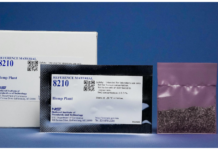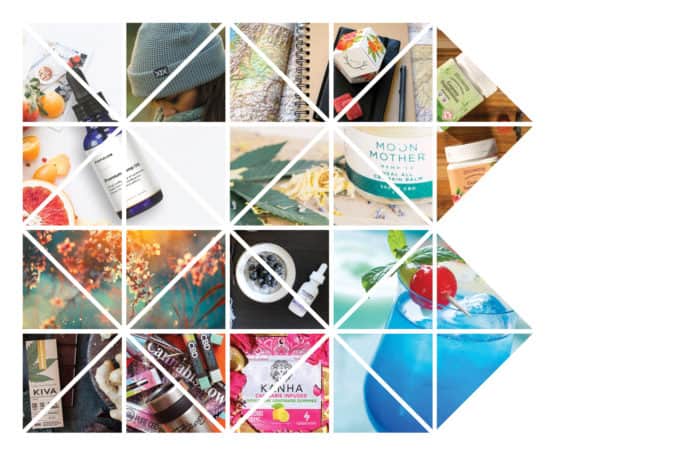As if ordained by some Universal Wisdom, the stars have aligned to bring health and wellness markets to the forefront at precisely the same moment when interest in cannabis-, hemp-, and other plant-based products is at an all-time high. Whether called karma, miraculous, inevitable, hype, or all of those, the global cannabis epiphany is, without question, a boon to millions seeking alternative options and treatments in a world full of consumers who want to look and feel healthier than ever before.
The convergence also represents the most significant industrial market opportunity in generations. Trade conference Global Wellness Summit issues annual lists of worldwide trends for the $4.2 trillion (with a T) wellness industry. For 2019, the organization predicted when cannabidiol—or CBD, the hemp-derived compound that’s currently all the rage—becomes federally regulated, a tidal wave of new infused products and applications will ensue.
The report also predicts the endocannabinoid system (the body mechanism that interacts with cannabinoids, present in all mammals) “will soon be just as talked about as the microbiome.” Comparing cannabis chatter to the volume of discussion about “good bacteria” in the gut is a remarkable indication of how far the industry has come.
Non-psychoactive CBD is only one of more than 200 cannabinoids that can be extracted from cannabis. With slowly developing federal legislation and regulation for cannabis-derived substances in the United States, worldwide research and trials that has been delayed for almost a century is receiving considerable interest.
Market research firm New Frontier Data reported the global consumer cannabis market will be worth $344 million in 2019, thanks to the purchasing power of 263 million consumers. At the same time, health and wellness manufacturers have gone back to the garden, with plant-based niches experiencing significant growth across sectors including food and beverage, beauty, leisure, and lifestyle.
“When it comes to what’s trending in the cannabis women’s market, the question is ‘What isn’t trending?’” —Alysia Sofios, Communications Director, Yummi Karma
Food and beverage makers, chefs, and foodies are searching the far reaches of the globe for exotic herbs and botanicals to add flavor and health benefits to their recipes. Aromatherapy once was limited to bundles of incense sticks at headshops or strange-smelling bottles at the health food store; today, aroma diffusers and essential oils are common alternatives to artificial scents and heavily perfumed air fresheners. Now, every grocery store is a health food store, as consumers turn away from overly processed items and on to locally sourced, sustainable, and organic fresh foods.
Delivery methods make a difference, too, according to Tamar Martiz, director of business development at BDS Analytics. She noted that, in general, tinctures and topicals with high-CBD ratios are consumer favorites, along with micro-dose products. “Whether it’s cannabis-based soaps, bath soaks, creams, make-up and, soon, more readily available cannabis-based over-the-counter products such as sleeping pills and pain creams, we’re going to continue to see products oriented toward health and wellness continue to take share,” she predicted. “In fact, what the consumer is ultimately seeking is convenience, as well as a consistent and reliable experience.”
Consumers also seek products analogous to their mainstream favorites. “I think companies that are nailing the ‘it’s just like the one my mom uses, but cannabis-infused’ approach are seeing success,” Martiz said. “And with new innovation around delivery mechanisms like sublingual and transdermal, as well as developments around onset and offset time, we’ll continue to see more ‘familiar’ cannabis products hit the market to meet this evolving consumer demand.”
It’s a perfect storm of potential in an uncharted ocean for cannabis and hemp entrepreneurs and other businesses that can catch and ride the great Green Tide. With so many possibilities, which health and wellness trends and product categories are differentiating into important market sectors? The horizon seems endless.
‘Let food be thy medicine’
Ancient Greek physician Hippocrates, the father of modern medicine, is credited with that quote. More than two thousand years later, he seems to be onto something. In the United States, where obesity and related diseases have steadily increased with the availability of ultra-processed convenience foods manufactured with artificial flavorings, preservatives, and unhealthy levels of natural ingredients like sugar and salt, consumer tastes are changing.
While you need a degree in Latin to decipher ingredients labels on many commonly consumed items, there’s still lots of controversy—even in legal states—over whether naturally derived CBD extract or hemp oil can be added to foods and beverages or used as a nutritional health supplement for human ingestion. The Food and Drug Administration allegedly is working on a regulatory policy for hemp-derived CBD products, which already are readily available online and, at this point, in most major U.S. drugstore chains, high-end grocers, and several luxury retailers. The public and industry stakeholders were invited to submit comments to the FDA through July 2 as part of the pending standards process.
The FDA’s slow regulatory process isn’t holding back food and beverage manufacturers that believe healthy eating trends will overtake the market. Brands that marry traditional herbal medicine, specifically Ayurvedic and Chinese formulas, with cannabinoids are part of the revolution. And they’re moving beyond the two most well-known cannabinoids to incorporate others like CBN and THCA. The newly popular ingredients are gaining traction on labels in three-component ratios.
Dan Grim, co-founder and chief executive officer for Good Stuff Tonics, is all-in on natural, healthy ingredients for the company’s line of beverages, prepared with organic juices and botanical ingredients including THC and CBD infusions. “We believe you don’t have to sacrifice your body to get a buzz,” Grim said. “Our drinks have a healthy edge—all-natural, organic ingredients you can understand with real, natural flavors.”
Good Stuff offers THC-infused, “health-based” juice blends in natural honey lemonade, raspberry yerba mate, and strawberry hibiscus lemonade flavors. The company attempted to be first-to-market with cannabis-infused kombucha—the hugely trending tea that’s fermented with yeast and sugar—but California regulations prohibit the addition of cannabinoids to beverages containing alcohol. Kombucha typically contains trace amounts of alcohol as a byproduct of the fermentation process.
In San Diego, where the company is based, kombucha is an evolving healthy craft beverage cottage industry, and a few brewers are producing hard kombucha with 4-percent to 7-percent alcohol levels, similar to hard cider or ale.
Good Stuff’s sister company, Melior Botanicals, produces CBD-infused tinctures that can be taken sublingually or added to food and drinks. Grim said herbal combinations used in traditional Chinese medicine inspired the tincture formulas. “People talk about the entourage effect,” he said. “So, why not combine the power of CBD with these herbs, which also produce beneficial effects?”
Lavender, chamomile, turmeric, valerian root, and black pepper are just a few of the all-natural botanicals Melior’s tinctures incorporate. Chinese and Ayurvedic medical traditions, as well as holistic health practitioners, have attributed health benefits to all of them. Melior sources its CBD extract from Colorado-grown “whole plant” hemp and retains full-spectrum cannabinoids, terpenes, flavonoids, and chlorophyll.
Culturally, diet has been an essential component of Eastern medicines for thousands of years, with the first documented medicinal use of cannabis tea credited to ancient Chinese emperor Shen-Nung, circa 2,700 B.C. Western consumers, who have been subjected to fad diets and processed foods for the past several decades, are increasingly interested in how diet affects health. According to Grim, consumers also are more openly curious about the health effects of consuming cannabis. “It’s changing in a heartbeat, and we’re glad to be part of it,” he said.
Education is imperative, he added. “We believe in cannabis as medicine, so we love to answer those questions,” he said. “When people come to us, they want to know ‘what’s the best CBD for me?’ They want relief from pain, anxiety, or they want to sleep. CBD is perfect for them because it balances you, mind and body. It helps with sleeping and waking rhythms.”
In June, Melior Botanicals expanded the brand’s reach by opening its first retail kiosk at the Westfield Mall in Cerritos, California. Several more kiosks are planned for Westfield Mall locations throughout the state. For now, Good Stuff’s THC-infused beverages are available only at legal cannabis dispensaries in California.
Edibles, overall, are popular with cannabis consumers who prefer ingestion to inhalation, but regulations for cannabis- and CBD-infused food and beverages vary from state to state, and they’re evolving. Trends in the making include catered events featuring cannabis chefs, as well as cannabis-infused mocktails to compliment infused meals.
In West Hollywood, California, which seems to have designs on becoming the U.S. version of Amsterdam, cannabis manufacturer Lowell Herb Company expects to open a rooftop restaurant in summer 2019, complete with expansive views, a cannabis-infused menu, and smoking and vaping allowed onsite. Nevada regulators also recently approved consumption lounges for Las Vegas; whether those will feature dining remains to be seen.
Women get woke
In 2018, Global Wellness Summit named “feminist wellness” an important-to-watch market opportunity, as women everywhere find themselves affected by the fast pace of modern life and all its expectations.
With more women earning higher incomes; post-millennials more willing to address issues like mental health, trauma, and abuse; and the demands of caring for extended families in addition to their own nuclear tribe, self-care is no longer a luxury indulgence—it’s a lifestyle essential. Women recognize the connection between happiness and health and actively seek products that elevate their mood.
Traditionally, women also are earlier adopters of health and wellness trends and savvier shoppers than men. It’s no surprise cannabis and CBD infusions now can be found in everything from skincare and tampons to bath bombs and breath mints.
“It’s exciting, because women are now using cannabis not just for health, but also for wellness and beauty—and it’s about time!” Yummi Karma Communications Director Alysia Sofios exclaimed. “When it comes to what’s trending in the cannabis women’s market, the question is, ‘What isn’t trending?’ It was only a few years ago that we were laughed out of the room when we said we wanted to create the first mainstream cannabis beauty brand for women. Luckily, we pursued it anyway and launched High Gorgeous. Today, there is so much demand that we’re constantly in research and development.”
The “we” to whom Sofios refers is the all-female executive team at cannabis company Yummi Karma LLC and its High Gorgeous infused beauty brand. Early operators in the legal cannabis industry, co-founding sister team Krystal and Chelsea Kitahara head up the company. They always have produced women-friendly products. The company’s first success was a THC-infused tincture developed for the Kitahara’s mother, who struggled with chronic insomnia. Called Drift Away, it’s been the best-selling sleep tincture in California since its debut, according to Sofios.
“No question—the CBD-only market is flourishing, but we’re now seeing women coming back to products with THC because they simply work better together,” Sofios said. “The science behind the entourage effect is real, and that’s why we now offer high-CBD products with different ratios of THC in our new wellness, detox, and beauty drops.”
High Gorgeous Cannabis Drops come infused in several ratios of THC to CBD and also contain vitamins and botanicals in three formulations, including Daily Dose, Fresh Start, and Inner Glow.
One might not equate sublingual tinctures with a cosmetics line, much less tonics infused with THC-to-CBD formulations. But if you believe in or seek inner beauty, a woman comfortable in her own skin is more attractive than one who is perpetually stressed, in pain, sleep-deprived, or in a bad mood. Bliss is beauty.
“Not only do women want THC products more than ever, but they want them to pack more milligrams,” Sofios said. “We’re rolling out a few new high-THC-only drops with our signature natural flavors to make them taste just like summer. We’re also doing a lot of product research with other phytocannabinoids that we think will be just as popular as CBD in the near future.”
As consumers, women move quickly through trendy products but can be very brand-loyal once they find a product or brand that resonates with them, feels empowering, and actually works. “In order to be a successful brand in the new legal landscape, you have to stay relevant,” Sofios said. “We love pushing the envelope—and women not only demand it, but they also appreciate it.”
Cannabiniers also recently began pushing the envelope with a novel delivery system: pharmaceutical-grade transdermal cream with a patented rapid-release technology that delivers a high dose of THC within minutes. According to President and Chief Operating Officer Tim Walters, BASKiN GLOW delivers 81 percent of its payload over the course of six hours and cannot be washed, rubbed, or sweated off.
Other innovative brands in the infused beauty space include Hora Skincare, CannaSmack, L’eela CBD Bodycare, Cannuka Skincare, and Kush Queen, just to name a few.
Upscale medi-spas are advertising CBD-infused massage and skincare services targeted at hip, holistically minded travelers and self-care enthusiasts. Fashion influencers like Kim Kardashian and blogs like Goop, owned by celebrity lifestyle influencer Gwyneth Paltrow, tout the benefits of CBD. Cannabis brand Lord Jones even managed to get its CBD-infused body lotion (available at Sephora) mentioned on the 2019 Oscars’ red carpet as the remedy of choice for starlets’ tired feet.
Pets are people, too
Cats and dogs are making it rain money: The American Pet Products Association estimates U.S. consumers will spend more than $75 billion on pet care during 2019.
According to a study released by the American Veterinary Medical Association in 2018, 57 percent of U.S. households included a pet. Millennials are pro-pet, according to a 2018 TD Ameritrade study, with seven out of ten including a “fur baby” in the family. On average, millennial pet owners spend more than $1,200 annually on their animal companions. It’s only natural that pro-cannabis pet owners might look at the herb as healthy for their pets.
“Cannabis can be very effective for chronic pain conditions such as arthritis and joint pain,” said Dr. Tim Shu, veterinarian and founder of cannabis-based pet care product company VetCBD. “The anti-anxiety properties of cannabis and CBD are excellent for separation and noise anxiety. Cannabis has anti-inflammatory properties, and we have seen many pets with allergies find relief through cannabis. The anti-nausea properties have been very useful for pets suffering from conditions such as kidney failure, chronic [gastrointestinal] disease, or cancer. Animals can be affected by seizure conditions such as epilepsy, and we have many clients use our products to control their pets’ seizures.”
A pioneer in the cannabis pet-care space, Shu developed PetCBD’s flagship CBD/THC tincture to treat pets with serious medical conditions including cancer, seizures, extreme anxiety, chronic pain, and inflammation from arthritis. When he founded the company in 2015, very few U.S. veterinarians were knowledgeable enough to be able to advise their clients; in any case, state regulators still have not developed policies for veterinary use. California, where VetCBD is based, finally gave approval for vets to speak with their clients about cannabis-based treatments in 2018. At this writing, the state senate had recently passed a bill that would allow veterinarians to recommend cannabis medications to their clients.
“Many pet owners and veterinarians have seen firsthand how cannabis is able to benefit pets,” Shu said. “By allowing veterinarians to discuss cannabis with clients, the relationship between healthcare provider and patient is strengthened, as veterinarians can now provide the information needed for pet owners to make informed decisions on their pets’ healthcare.”
While the original VetCBD formula is available only in California dispensaries due to THC content, the company recently launched a hemp-derived, CBD-only pet tincture that’s available online under the Dr. Shu’s Pet Care label.
While Shu focuses exclusively on the pet health market—as do Canna-Pet, Treatibles, and Relievet—other cannabis brands have added pet products to their people lines. Pets can’t make purchases, but their owners certainly might. Leading U.S. human-care manufacturers including Charlotte’s Web and Dixie Brands, to name just two, have added CBD-infused products appropriate for two-legged and four-legged family members.
Lifestyle maven, dog and chicken breeder, and now cannabis entrepreneur Martha Stewart in February announced a partnership with Canadian multinational Canopy Growth to produce a line of infused pet care products. Stewart, whose mainstream pet products line already is available at PetSmart stores, has the kind of market clout that will help to normalize the industry for retailers and consumers.
Hemp: hot, hot, hot
The hype around hemp-derived CBD promises the substance will be everything for every ailment. Projections suggest the global market will be worth $22 billion by 2025. As it stands, there is almost no health-and-wellness segment that hasn’t felt the effects of CBD, from lip balm to suppositories.
Hemp seeds (a raw material for industrial hemp oil) have long been considered a “superfood,” packed with amino acids and plant protein. The seeds are included in granola and birdseed blends, ground up in protein powder, and used to make vegan cheese and hemp milk. Because hemp, unlike its varietal cousin marijuana, contains only trace amounts of the psychoactive compound THC, U.S. officials have allowed the use of hemp seeds as a consumable for decades. In fact, the U.S. is the largest global importer of hemp products from countries like China, France, and the Netherlands, where hemp crops were legal long before they were legal here.
“U.S. federal prohibition [of hemp] doesn’t exist anymore,” said Chris Husong, director of marketing for multinational CBD manufacturer Elixinol. “As of the new farm bill, it’s been moved down to the lowest schedule possible, the same as cough medicine. So, we’ve experienced a huge growth in our market [in the U.S.] and prohibition is primarily lifted in the United States.
“The challenge right now, with the FDA asking for comments from everyone… We’re helping them with guidelines and giving comments on how they can add regulation and transparency for people who are in the industry and for major retailers who are carrying products, so they know there’s a consistent labeling recommendation or regulation on serving sizes or country of origin or ‘full spectrum’ versus ‘isolate’—those types of things,” he added.
Founded by Paul Benham, an Australian hemp tycoon and natural foods pioneer, Australia-based Elixinol Global offers international distribution, wholesale orders, white-labeling, drop shipping, and an affiliate program. The company’s range of products includes topicals, tinctures, edibles, powdered isolates, and capsules in packaging that looks in line with any drugstore wellness brand.
Consumers are hurrying to catch up with the CBD trend. With so many products already available and little education about the science behind the products or the endocannabinoid system, many potential consumers are wary and skeptical of too-good-to-be-true claims for benefits that have yet to be proven.
Cannaisseur Brands developed its CBD Essentials First Aid Kit to show shoppers how CBD’s anti-inflammatory and antiseptic effects can be used as a remedy for everyday aches and pains. Simple products including lip balm, pain-relief cream, massage oil, bath salts, and a transdermal patch allow consumers to experience several different types of application.
“We come from a background of medicine—or wellness, I should say,” said founder and Chief Executive Officer Aryn Sieber, who was a 9/11 first-responder. “My story: I’m a stage four cancer survivor, so everything we do and where we are—we are wellness, which differentiates us in our products from pretty much 90 percent of the field out there. The topicals were all born out of topicals I used and developed going through my cancer treatments. My background is I’ve been a grower for more than forty years.”
Like many of his colleagues, Sieber feels some manufacturers have infused products with CBD as nothing more than a trend-chasing sales tactic. They are doing an injustice to seriously ill consumers, as well as businesses that offer tested, legitimate products. Like many other cannabis and CBD entrepreneurs, he stresses consumer education as a way to combat negative experiences with infusions that don’t deliver.
“If somebody comes in with chronic pain, it’s like, ‘Listen, these topicals would be a great relief temporarily. But you may have something—osteoarthritis, whatever—that you might want to dig a little deeper [about], and here’s a source where you can find more information that’s credible,’” Sieber said. “I just don’t have enough breath in this world left to BS people, which is why a lot of people that are sick, what I say resonates with them because I’ve been there.”
Cannaisseur also operates the nonprofit CannaCauses Foundation, which provides CBD formulations to patients and tracks their medical condition, symptoms, and progress with infused medicinals. Community outreach goes beyond being trendy and is an essential component of company culture for many cannabis companies.
“We are wellness,” Sieber said. “That’s where we come from, and our products are about the therapeutic value… This is for people who have chronic pain, muscle and joint pain, aches, or something that just is chronic or severe. And it’s a great starting point to educate them. That’s where it all starts.”
Rob Hill contributed to this report.
Products Spotlight:
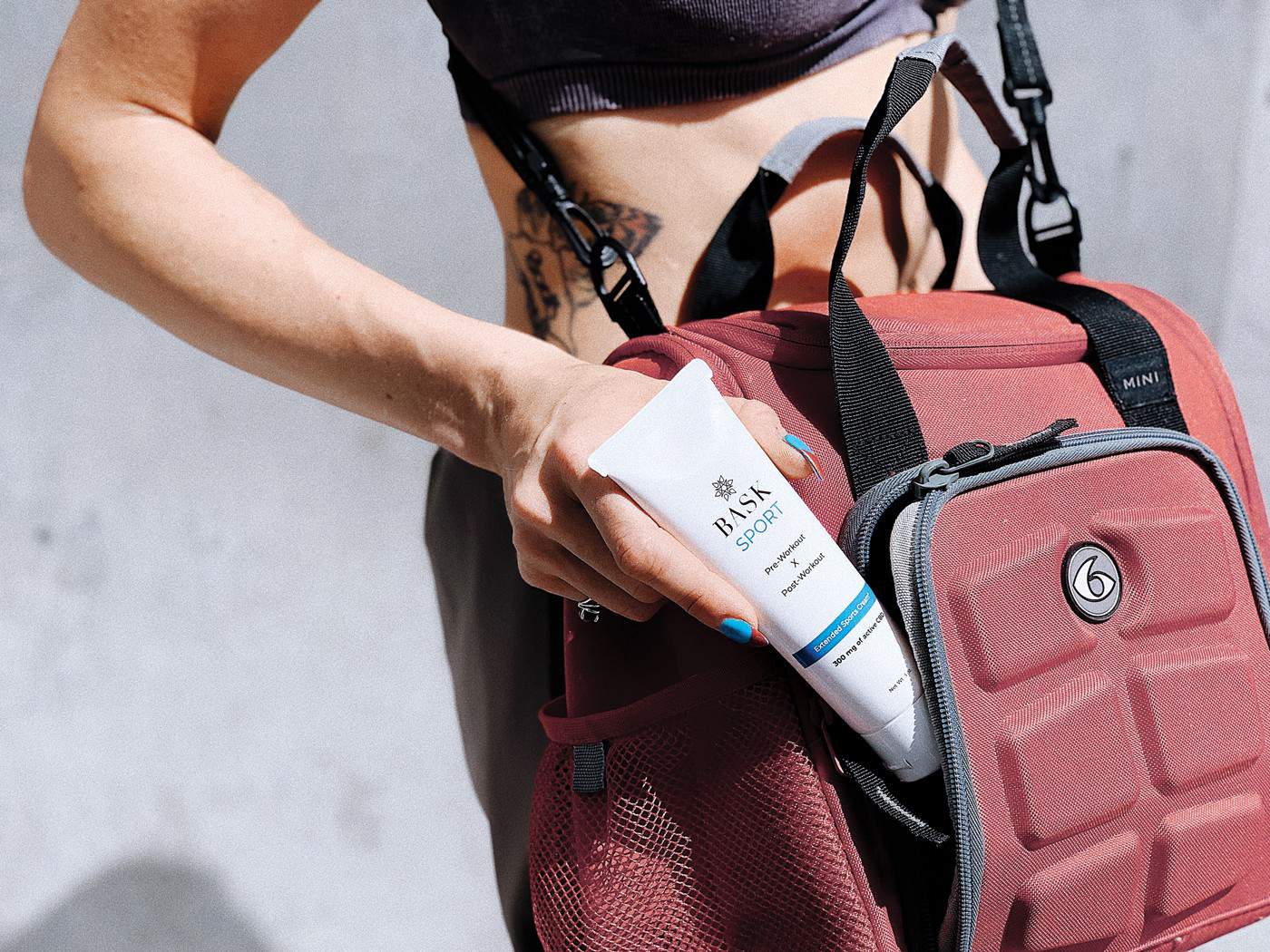
BASKiN Sport
Sport travels easily to the gym, the field, or anywhere else that demands quick, active relief pre- and post-workout. Part of BASKiN Essentials’ hemp-derived CBD line, the product incorporates a patented process that introduces more than 80 percent of the infused CBD into the bloodstream over six to eight hours. 300mg active CBD in a 3oz tube; MSRP $50.
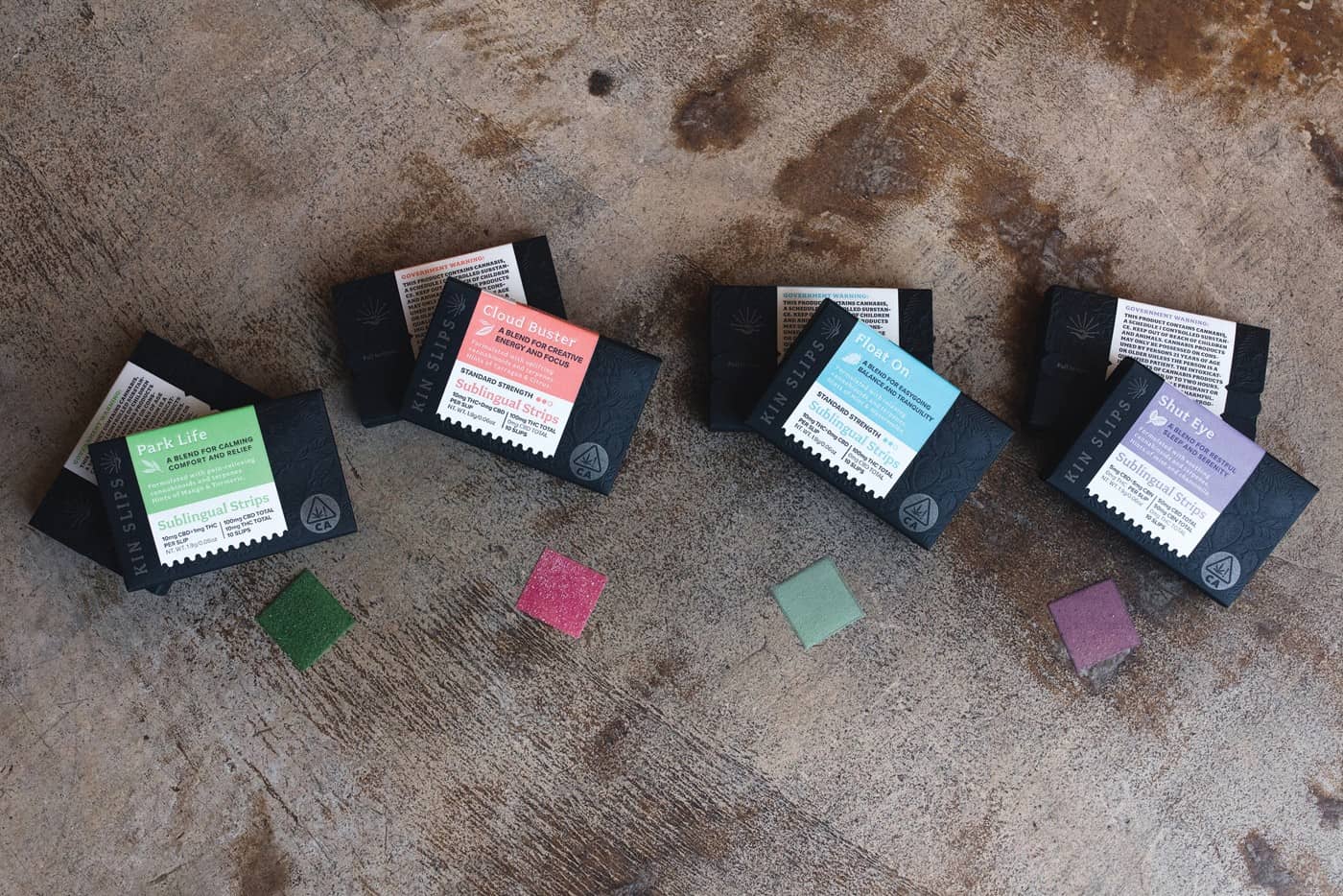
KIN SLIPS
A simple, discreet sublingual strip for precise dosage and rapid absorption, Kin Slips’ botanically based blends contain full-spectrum cannabinoids, terpenes, and other natural ingredients. Targeted, trademarked formulations include Shut Eye, Float On, Cloud Buster, and Park Life. 5mg to 20mg THC per slip.
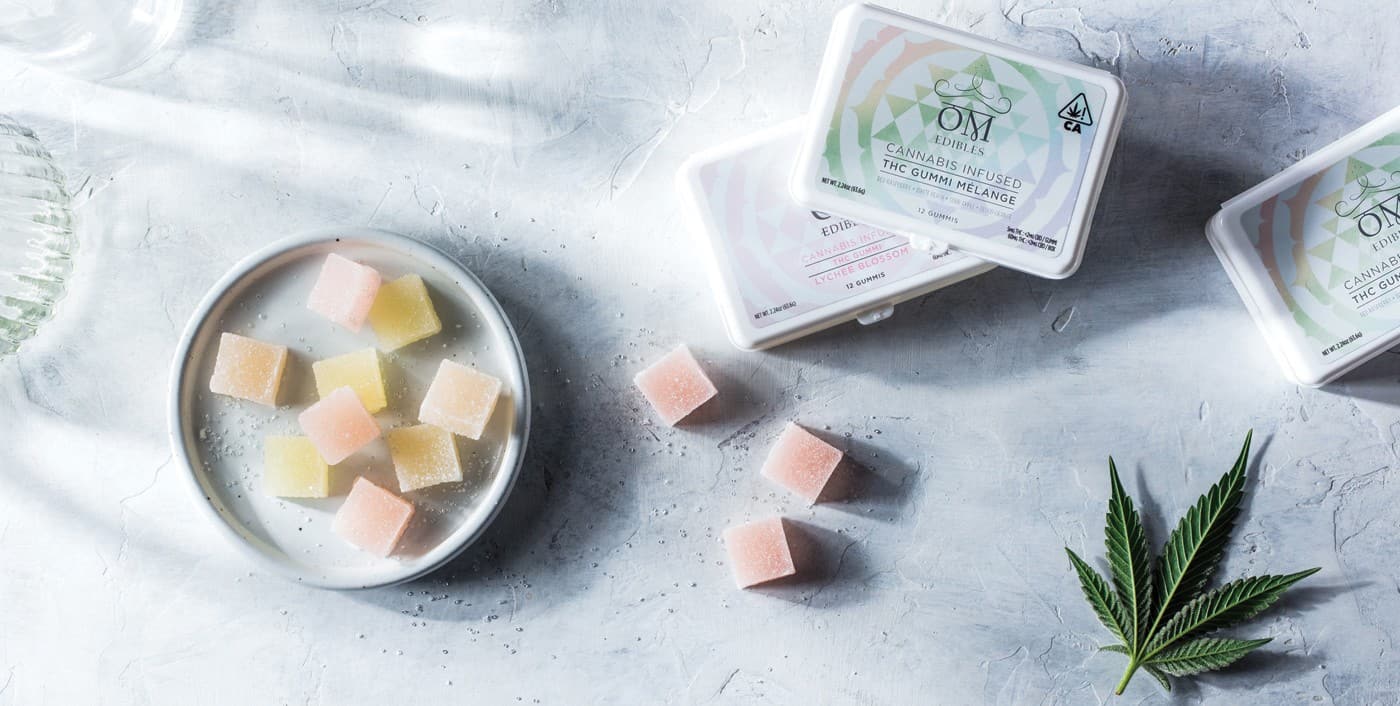
Om Edibles Gummies
Delicate, sweet, floral, and fruity, Om’s Gummies come in Lychee Blossom flavor (THC-only) or Mélange Medley, which includes Red Raspberry, White Peach, Sour Apple, and Blood Orange flavors (available in THC, CBD, and 1:1). The gem-like gummies burst with light, natural flavor and keep users lifted. 5mg each.
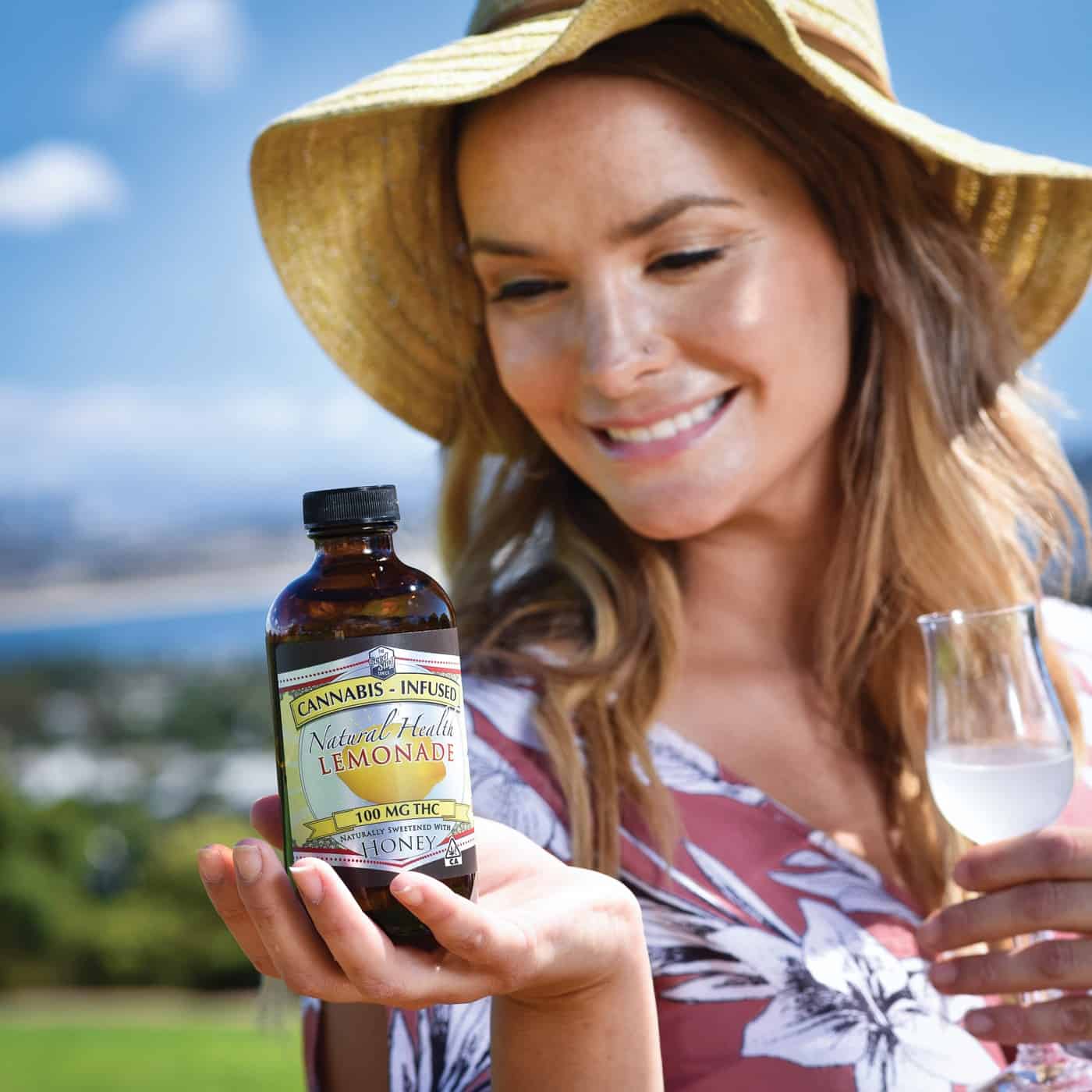
The Good Stuff Tonics
The Good Stuff’s infused drinks provide a healthy twist on a popular American beverage. Natural Health Honey Lemonade and Strawberry Hibiscus Lemonade use organic ingredients, are sweetened naturally with honey and organic cane sugar, and include no potentially toxic preservatives like sodium benzoate. Products are manufactured using local organic ingredients.100mg THC per bottle.
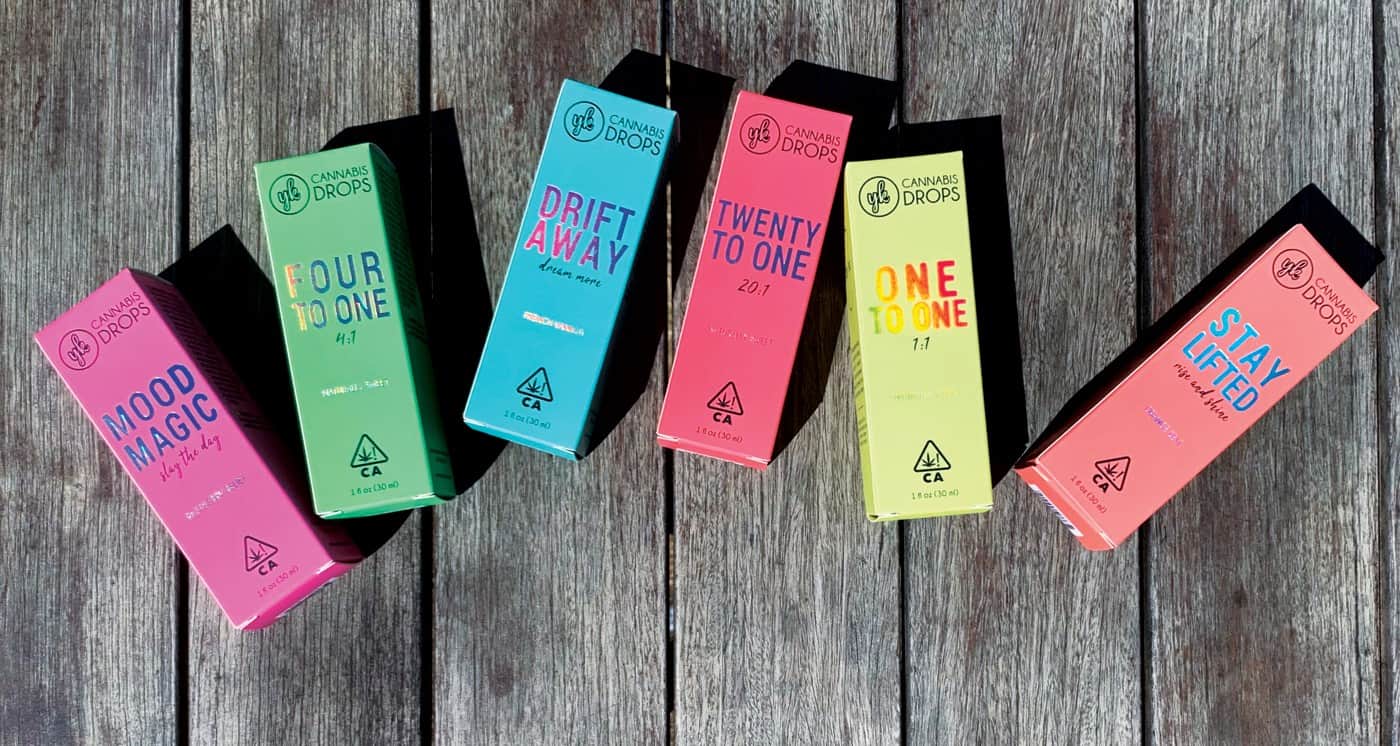
Yummi Karma Cannabis Drops
From sleep to anxiety to PMS relief, Yummi Karma’s award-winning Cannabis Drops offer an effect for every need. Created by women, for women, each 1oz bottle contains approximately 30 servings. Natural flavors combine with cannabis and/or hemp in an MCT oil base. Stay Lifted, Drift Away, and Mood Magic: 300mg THC per bottle. One to One: 150mg THC, 150mg CBD. Four to One: 240mg CBD, 60mg THC. Twenty to One: 300mg CBD, 15mg THC.
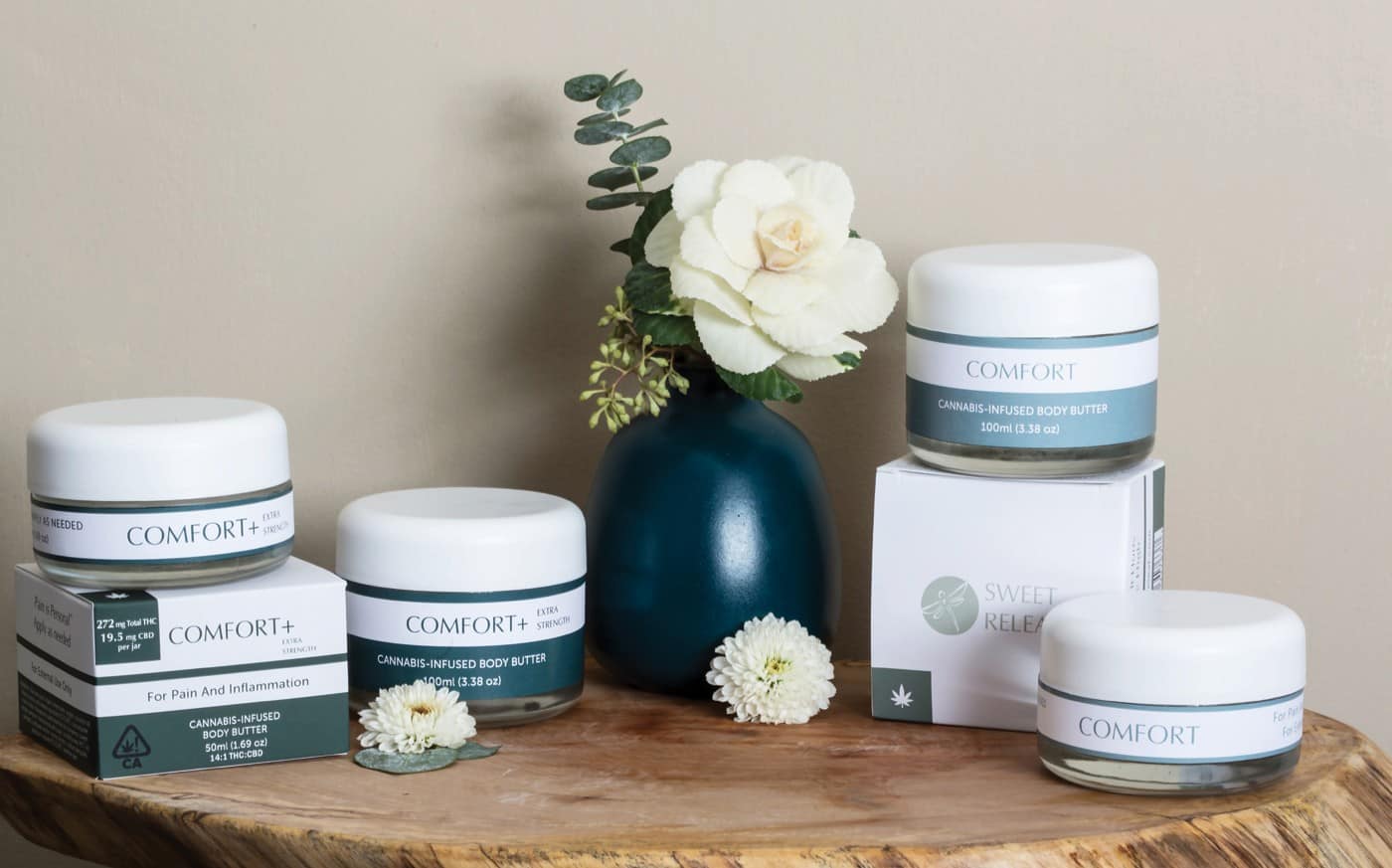
Sweet Releaf Body Butter
A whole-plant, terpene-rich mixture of THC for pain, THCA for inflammation, and CBD for enhanced effect, Sweet Releaf’s Comfort and Comfort+ body butters are crafted to soothe mild to moderate pain and nourish the skin. Formulated with aloe vera, organic coconut oil, and shea butter, both products are infused with a 14:1 THC:CBD ratio. Comfort+ contains twice as much cannabis per application as Comfort.

Stillwater Beverages
Designed for relaxation, Stillwater’s teas and coffee are crafted from organic leaves and beans plus coconut oil and cannabis distillates. Vegan, keto-friendly, and free of gluten, sugar, and GMOs, the beverages are infused with 10mg CBD and 0.5mg THC per serving. In Mellow Mint and Gentle Green teas and Clockwork Coffee.
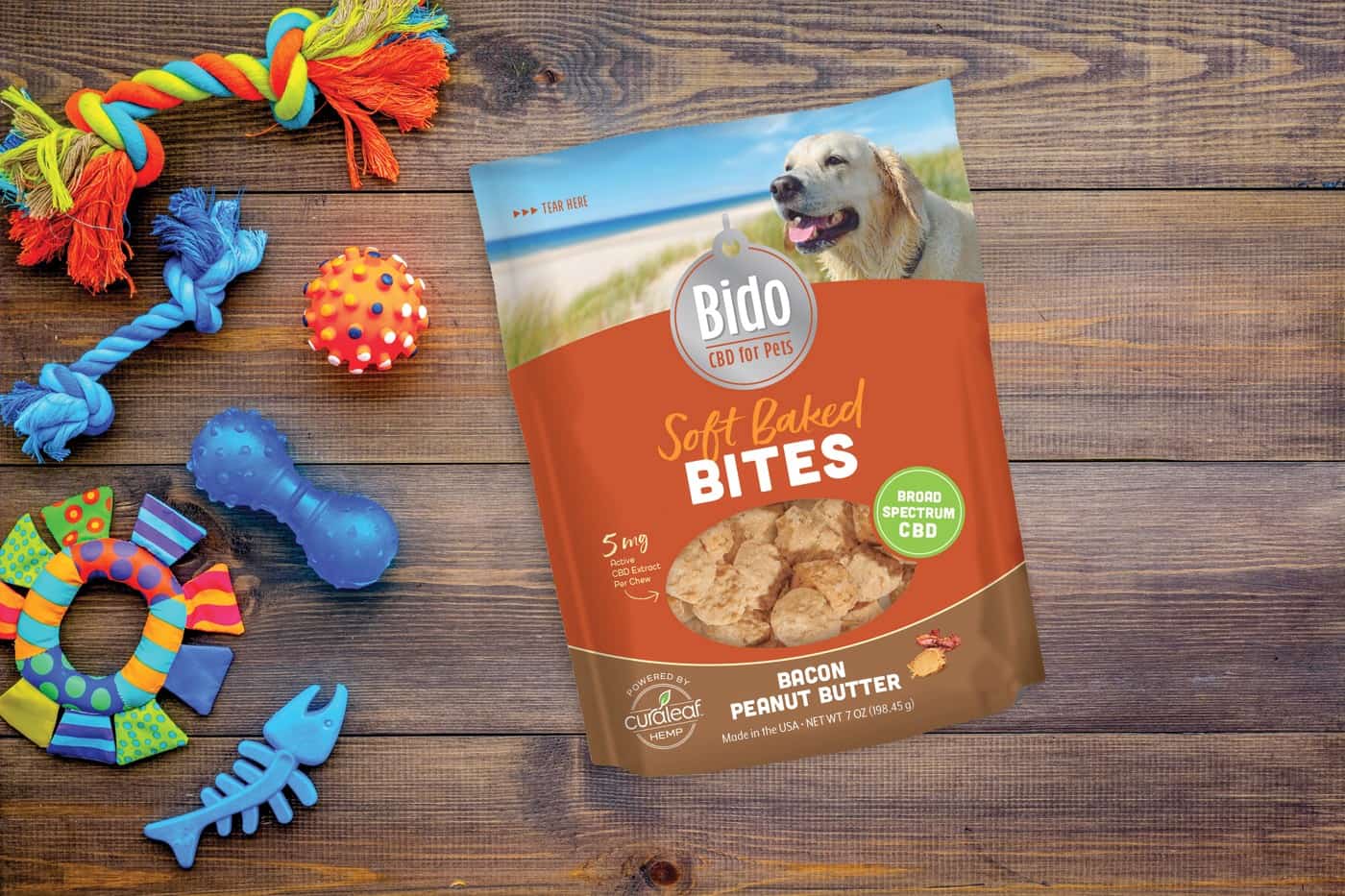
Bido CBD for Pets
From Curaleaf, this new pet line offers tinctures and treats so mammalian BFFs can maintain a healthful CBD routine. Often used for anti-inflammatory benefits, to calm anxiety, or relieve pain, tinctures can be added to pet food or cookies may be used as a treat. Infused treats come in bacon & peanut butter, apple & chicken, and honey & sweet potato flavors. 250mg in each 7oz package; 5mg per treat. MSRP $39.99.
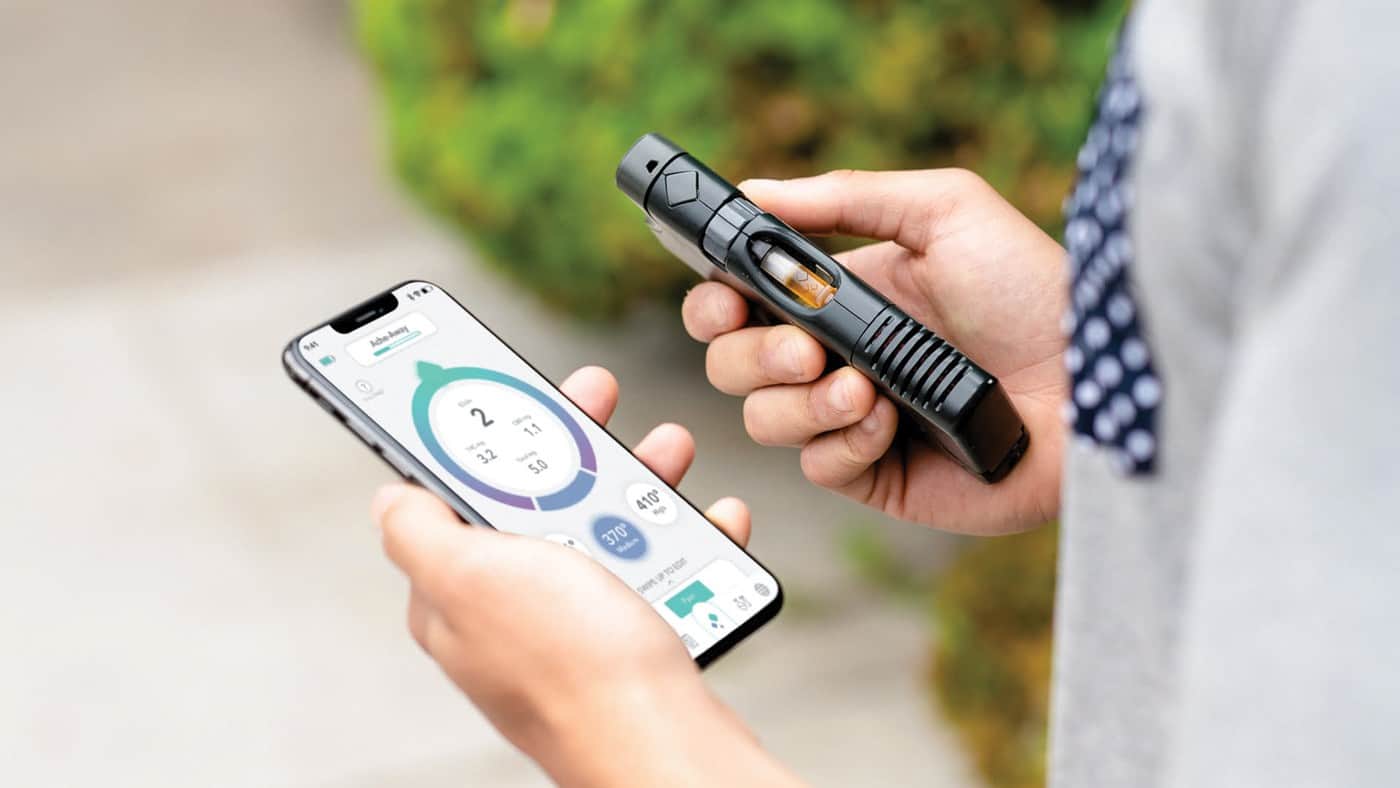
Gofire Health Suite
The patented Gofire Inhaler works with SMART Cartridge THC and CBD concentrates, enabling precise dosing while patients monitor their results via the Gofire app. Developed with medical-grade materials for eventual FDA approval.
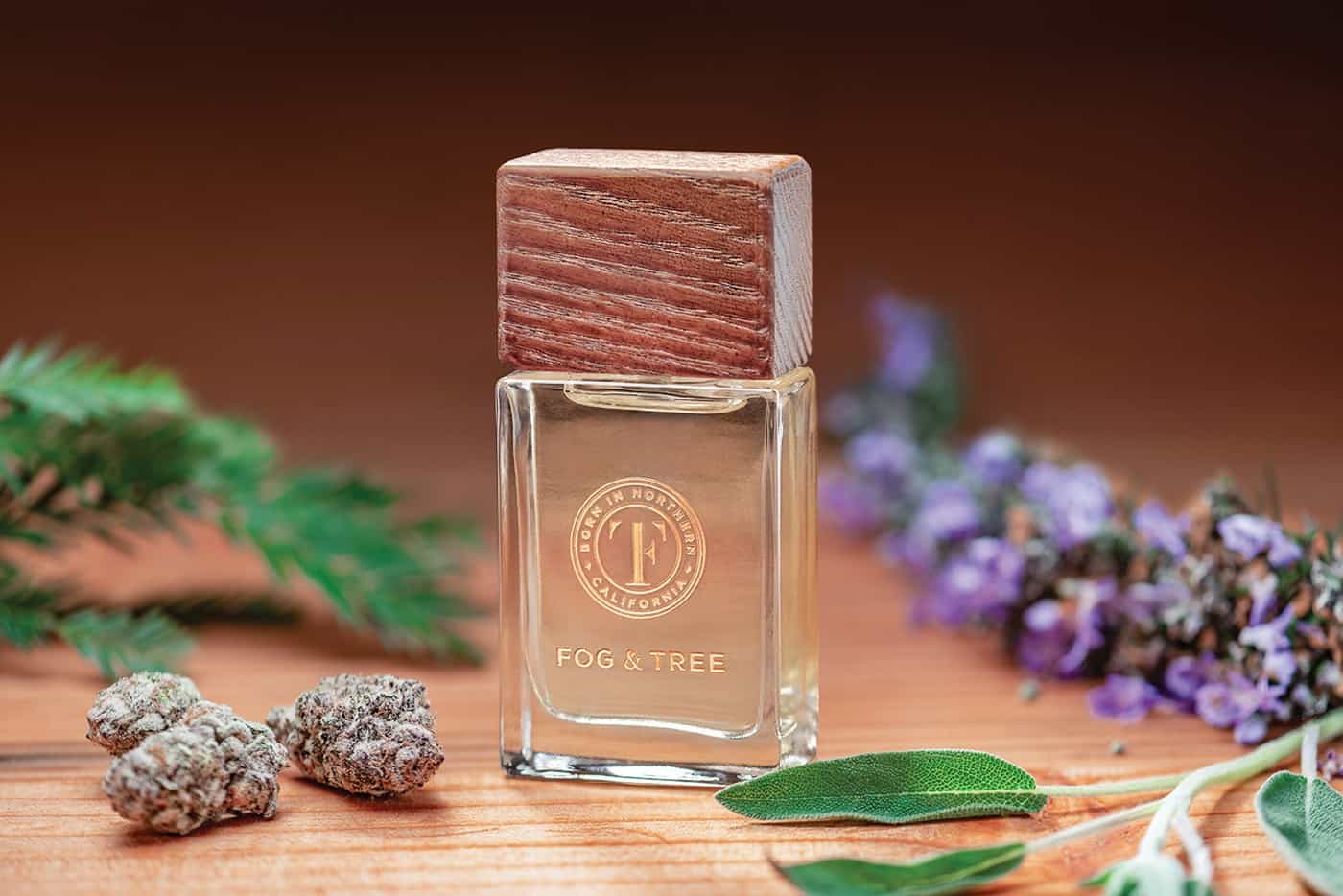
5 Top Trends
Use this intel to inform your 2019 strategy.
Cannabidiol
CBD is the big word for 2019. The market for marijuana’s non-psychoactive cousin exploded in January following passage of the 2018 Farm Bill, which de-scheduled the substance. Now widely available on mainstream pharmacy, grocery, boutique, and convenience store shelves, hemp-infused products are expected to generate $16 billion in annual sales by 2025, according to New York investment bank Cowen & Co. The figure represents a monumental leap over the $2 billion by 2022 analysts predicted last year.
Fragrances
Cannabis scents have come a long way from the traditional “skunk.” Today’s cultivars exhibit a wide variety of notes, including fruit, berries, and pine. All play well with more traditional aromatic elements like lavender, citrus, clove, and sandalwood. Consequently, cannabis essential oils increasingly are showing up in perfume, candles, and aromatherapy products. Effects run the gamut from energizing to erotic and calming.
Terpenes
Far from mere olfactory impact, terpenes also provide flavor and therapeutic effects. Cultivators and processors are combining terpenes and manipulating concentrations in ever-more-creative ways to produce a striking variety of targeted products for rec and medicinal markets. Bartenders and chefs are pushing the trend in a different direction, with signature mocktails and cannabis-infused menus for everything from appetizers to desserts.
Beverages
Cannabis-infused nonalcoholic beers and wines are on the rise, as are bottled waters, energy shots, fruit-flavored drinks and powdered drink mixes, kombucha, teas, and coffee. Both THC and CBD products are on the market, although CBD-infused beverages are receiving more attention because they’re more widely available. BDS Analytics expects cannabis-infused beverage sales to top $374 million by 2022—roughly ten times the category’s revenue in 2018.
Seniors
Millennials currently compose the largest segment of the recreational market, but Baby Boomers are rising fast in both rec and medicinal use. According to BDS, 67 percent of seniors consume for health and medical reasons and are much more likely to identify aches, pains, and other challenges as reasons for embracing weed. However, 60 percent of Boomers also say they enjoy cannabis in social situations.




